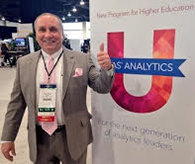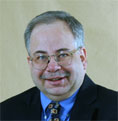|

SDTM and ADaM: The Basics and Beyond
Scheduled Time:
Sunday, November 5th, 8:00 am - 12:00 pm
Intended Audience: Clinical Programmers, Biostatisticians, or Data Managers that have basic to intermediate understanding of the CDISC model.
Instructor: Charity Quick
Abstract: This workshop will begin with a brief overview and description of the CDISC standards; past, present, and future. The focus, however, will be on the implementation of Study Data Tabulation (SDTM) and Analysis Data Model (ADaM). Through the use of example aCRF, protocol, table and listing mocks, and raw study data we will build SDTM and ADaM study domains, discuss interactions and dependencies, and areas for potential risk. Important topics such as Controlled Terminology, Therapeutic Area Guides, and Trial Design domains will be covered. Further, a comprehensive list of helpful resources for both new and experienced users will be provided. The goal of the workshop is to provide a solid working foundation for clinical programmers, biostatisticians, and data managers that are new to the implementation of the CDISC model while providing helpful examples, resources, clarification, and discussion for more experienced users.
Instructor Bio:
Charity Quick has over 10 years of experience as a Statistical Programmer and team lead for Phase 1 through 3, ISS/ISE, NDA Submission, and DMC projects. During this time, Charity has been active in facilitating the integration of CDISC standards at Rho, Inc. while specializing in the conversion of data to the SDTM and ADaM models.


Are You Ready to Take the Base SAS® Certification Exam? Let's Review Together
Scheduled Time:
Sunday, November 5th, 8:00 am - 12:00 pm
Intended Audience: All SAS Users
Instructor: Joy Smith
Abstract: I can tell you from experience, many of the questions on the Base SAS Certification Exam are designed to be tricky and they are! I know people who thought they were ready for the exam and they did not pass. After more than 30 years of using SAS you would think I could get a perfect score... but sadly, I did not. So even if you have used SAS for many years and think you are ready, unless you have thoroughly prepared on your own, this workshop might be just what you need. Of course, if you are fairly new to SAS, this workshop can be helpful to you, too!
We will quickly cover the exam topics that are straight forward and answer any questions you have. We will spend additional time complicated topics that might trip you up, and again answer any questions you have.
Most material will be presented as a review question, in hopes that after the workshop you will be more prepared and comfortable when you see the real exam questions. I will try to make the questions as tricky as possible in hopes that the real exam questions will not be able to trick you! No SAS materials or questions can be used, so all questions will be new to you, even if you have reviewed the SAS material and practice exam. Some of the material may resemble information gleaned from the internet. Hopefully most of the material will be a review.
SESUG will be offering a limited number of spots for SAS certification testing post-conference on Wednesday, November 8. These tests will likely be in the late morning and transportation from the hotel to the testing facility on SAS Campus will be provided. These certification exams will be offered at a 50% discount from their normal rate. I would love to hear how you do. Good Luck, and RELAX.
Purpose: The purpose of this course is to highlight the issues necessary for the discipline of Test-Driven Development (TDD), an aspect of Agile and Extreme Programming.
Instructor Bio:
Joy Smith worked at NC State University as a SAS consultant / Data Analyst for more than 30 years. She recently retired from the full-time position and is working part-time as a consultant and instructor for clients at NCSU. Joy has taught numerous SAS classes to students at NC State University over many years. Joy enjoys gardening, reading and grandkids in her free time.


Building High-Impact Dashboards using SAS® Basic Software
Scheduled Time:
Sunday, November 5th, 8:00 am - 12:00 pm
Intended Audience: All SAS users
Instructor: Kirk Paul Lafler
Abstract: Organizations around the world develop static and interactive dashboards, referred to as enterprise dashboards and scorecards, to display the current status of "point-in-time" charts, tables, reports, metrics and key performance indicators. Effectively designed dashboards, along with the code behind them, frequently consist of extracting data from multiple sources, data cleaning tasks, restructuring data, and the production of charts, tables and reports with the purpose of highlighting important information, numbers, tables, statistics, metrics, performance information and other essential content on a single screen. This workshop explores the best practice programming techniques in the design and application of static and highly interactive drill-down (interactive) dashboards using SAS® Base software. Attendees learn how to create effective dashboards with a purpose not in weeks or months, but in hours, using the DATA step, PROC FORMAT, PROC PRINT, PROC REPORT, PROC MEANS, PROC SQL, ODS, ODS Statistical Graphics, PROC SGRENDER, PROC SGPLOT, PROC SGSCATTER, PROC SGPANEL, PROC TEMPLATE, and HTML basics.
Instructor Bio:
Kirk Paul Lafler has been programming in SAS® since 1979 and is consultant and founder of Software Intelligence Corporation. Kirk teaches SAS programming classes at UC San Diego Extension and to the public, is a SAS Certified Professional, application developer, programmer, data analyst, mentor, and provider of IT consulting services and education to SAS users around the world. As the author of six books including Google® Search Complete! (Odyssey Press. 2014) and PROC SQL: Beyond the Basics Using SAS, Second Edition (SAS Institute. 2013); Kirk has written hundreds of papers and articles; been an Invited speaker at hundreds of SAS International, regional, special-interest, local, and in-house user group conferences/meetings; and is the recipient of 25 "Best" contributed paper, hands-on workshop (HOW), and poster awards.


PROC FORMAT and PROC TABULATE to Generate Great Looking Reports
Scheduled Time:
Sunday, November 5th, 1:00 pm - 5:00 pm
Intended Audience: Intermediate users of SAS
Instructor: Jonas Bilenas
Abstract: PROC TABULATE can look very complex to the beginning user. However, once you get a feel for it you will love it for generating reports. We will look at the syntax of PROC TABULATE, look how PROC FORMAT can help you generate better and more efficient reports, and we will look at ODS OUTPUT to make your reports look really professional.
Instructor Bio:
Jonas has been using SAS since 1986 in the Banking and Finance industries. His expertise is in the Data Step, modeling for credit approval and regulatory models, experimental design, statistics, optimization and reporting. He has been active in local, regional and international SAS User Groups. He has published the text, The Power of PROC FORMAT, which is no longer in print.


Exchanging Data between SAS® and EXCEL®, Using Basic SAS Techniques
Scheduled Time:
Sunday, November 5th, 1:00 pm - 5:00 pm
Intended Audience: All SAS users
Instructor: William E. Benjamin Jr.
Abstract: This course will examine some methods all levels SAS programmers may be familiar with. The detailed examples presented in the course demonstrate movement of data between SAS and Excel file structures and how to change the format of variables read from an Excel file using DATASET options to read specific Excel columns. Several of these features are available with only BASE SAS installed, however others will require the installation of additional SAS/ACCESS products or other SAS software. Each of the examples will be shown and explained in enough detail to allow application by the user when the course is complete. While some of these techniques are common and widely used, they are also feature rich and permit access to Excel files in ways that are not frequently used.
This session the material to be covered will be derived from the Chapters 1 to 8 of "Exchanging Data between SAS and Microsoft Excel: Tips and Techniques to Transfer and Manage Data More Efficiently".
- Conversion of text files to an Excel format using built in Excel data conversion features
- PROC EXPORT and PROC IMPORT features and examples
- SAS LIBNAME methods and examples
- SAS Enterprise Guide methods to access Excel files
- ODS Tagset Template output files (CSV, HTLM, MSOFFICE2K, and EXCELXP)
- SAS procedures that output Tagset Template files
- ODS Excel destination output to Excel files, usage and examples
Instructor Bio:
William's expertise includes Base SAS® Software, and SAS macros. He has a BS degree in computer science from Arizona State University and an MBA from Western International University. He has been a SAS software user since 1983 and a computer programmer since 1973. His programming experience spans from vacuum tube mainframes, to current PC computers. William currently owns a consulting company called OWL Computer Consultancy, LLC in Phoenix AZ. His new SAS Press book "Exchanging Data between SAS and Microsoft Excel: Tips and Techniques to Transfer and Manage Data More Efficiently" was released in April 2015.


Untangling the World Wide Web
Scheduled Time:
Sunday, November 5th, 1:00 pm - 5:00 pm
Intended Audience: All SAS Users
Instructor: Mark Jordan, SAS
Abstract:
- Process remote data files on FTP servers in place with FILENAME FTP
- Access web pages to extract data from HTML tables
- Follow hyperlinks to automate data acquisition from multi-layered HTML pages
- Work with Internet APIs and extract data from XML and JSON response files
- Extract data from delimited text, CSV, and Excel files
- Work with compressed (ZIP) files
Instructor Bio:

|

